From the Chicago Reader (October 1, 1993). — J.R.
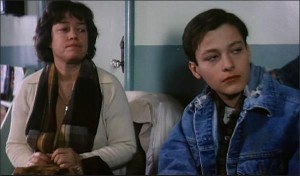
Director Tony Bill (My Bodyguard, Five Corners, Crazy People, Untamed Hearts) brings a lot of feeling and detail to this sort-of-true-life tale written by executive producer Patrick Duncan. It’s about a single mother (Kathy Bates) with no savings who leaves Los Angeles with her six kids for rural Idaho in 1962, and much of the family’s saga is very moving. (Duncan himself, who actually grew up with 11 siblings, corresponds to the oldest child and narrator here, played by teenager Edward Furlong.) Along the way the film loses some of its conviction; it winds up trying too hard and pushing some of its effects. Even so, the depiction of poverty has plenty of grit and flavor, and the cast — which also includes Soon-teck Oh and Tony Campisi — does a creditable job. (JR)
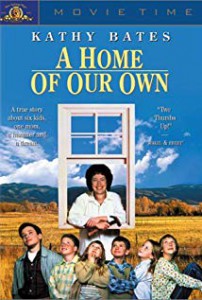 Read more
Read more
Written for the U.K. journal Underline in July 2018. — J.R.
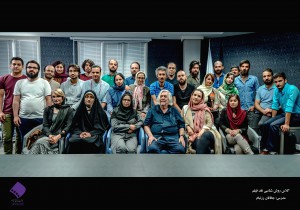
In mid-July 2018, I had the honour and privilege of helping to launch an ambitious lecture series in English at the Iranian National School of Cinema – at their attractive and comfortable new headquarters, built only a couple of years ago – by giving a week of daily two-hour lectures about film criticism. Other guest lecturers over the next several months will include Dina Iordanova from Scotland, art historian Marion Zilio from France, Dudley Andrew from the US, Jean-Michel Frodon from France, Paolo Mereghetti from Italy, Carlos F. Heredero from Spain, and Raymond Bellour from France. Several Iranian film critics will also be featured.
The hundred or so students who applied to enroll in this moderately priced series had to take an exam testing their knowledge of film history and their proficiency in English, and roughly a quarter of these applicants were accepted. This winnowing out of applicants proved to be quite efficient in yielding a group of students who were appreciative of such contemporary filmmakers as Abbas Kiarostami, Béla Tarr, and Andrei Tarkovsky and able to write the sort of English that communicated in spite of some uncertain grammar. Read more
From the Chicago Reader (September 4, 1992). In the interests of full disclosure, I should note [in April 2018] that I’ve furnished the expanded edition of Transcendental Style in Film with a favorable blurb about Schrader’s new Introduction, and that I regard his latest feature, First Reformed, as the best by far of his films to date (at least among those that I’ve seen), despite some persistent misgivings that are expressed in some of the remarks below. — J.R.
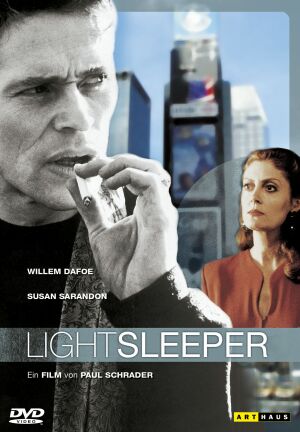
LIGHT SLEEPER
** (Worth seeing)
Directed and written by Paul Schrader
With Willem Dafoe, Susan Sarandon, Dana Delany, David Clennon, Mary Beth Hurt, Victor Garber, Jane Adams, Paul Jabara, and Robert Cicchini.
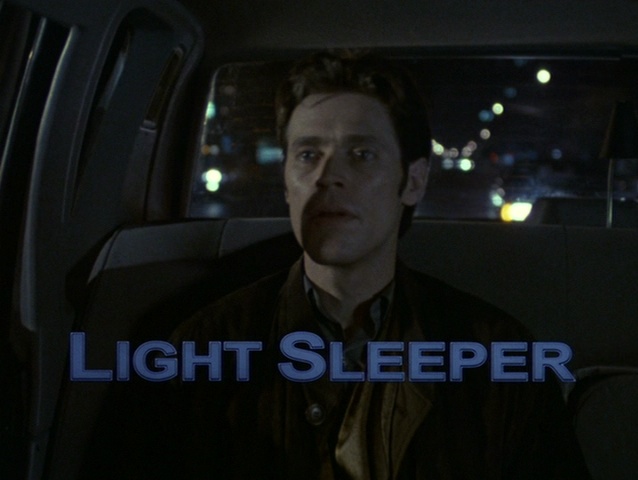
The French New Wave of the 60s offers many examples of film critics of some substance who became filmmakers — among them Claude Chabrol, Jean-Luc Godard, Luc Moullet, Jacques Rivette, Eric Rohmer, and François Truffaut. But the commercial American cinema of the 70s offers us only one, Paul Schrader (the only other contender, Peter Bogdanovich, was by his own admission more of a reporter and interviewer than critic before he turned to filmmaking). Yet Schrader has not made a wholly satisfactory transition. As a writer he made his mark on several important features — including Taxi Driver, Obsession, Raging Bull, and (in a minor way, not credited) Close Encounters of the Third Kind. Read more





